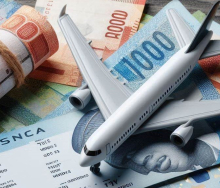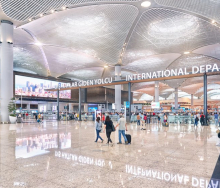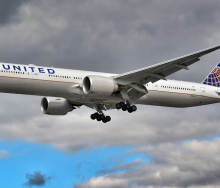Cape Town International Airport (CTIA), with its new international and continental routes and carriers, saw year-on-year growth of 48% and processed 2,8 million two-way passengers.
This was shown in Cape Town & Western Cape Tourism, Trade and Investment (Wesgro) report on air travel trends in 2024. The trends include a race to meet exponentially growing demand, progress in African aviation's collaboration, accelerated adoption of sustainable practices and the reshaping of the industry through innovation.
Growing demand
Global air travel made a robust turnaround in 2023, driven by rapidly increasing passenger demand. As a result, capacity among African airlines has been limited, exacerbated by manufacturers delaying the delivery of new models, and high fuel prices as the conflicts in Eastern Europe and the Middle East create uncertainty.
CTIA, despite these challenges was able to exceed 2019 passenger processing numbers, as it reached a new high of 2,8 million two-way passengers.
"Due to the exceptional international terminal growth, we hope to see much-needed infrastructure expansion at CTIA, with an announcement on plans expected soon," Wesgro reports.
In the interim, Cape Town is developing its second airport, expected to accommodate domestic and international carriers – Cape Winelands Airport.
The South African travel, tourism, trade and investment industries are waiting in anticipation of the National Aviation Policy by the Department of Transport's decision – hopefully, a decision to lessen restrictions on international Air Service Agreements.
The African agenda
This coming verdict on Air Service Agreements, along with SAATM, Iata's Focus Africa initiative and SAATM's Pilot Implementation Project, is expected to contribute to continental liberalisation of the aviation and investment industry.
Most notably, by the end of 2023, SAATM had received 38 of 54 African countries' pledges, this representing 80% of the African population. However, the absence of Fifth Freedom Traffic Rights among African countries remains a challenge, bringing unnecessary costs and delays in issuing Foreign Operator Permits.
Tangible sustainability
According to Wesgro, South Africa is well-positioned to become a potential market leader in the race for sustainable aviation fuel. Furthermore, as airlines partner with airports prioritising sustainable practices, the drive to go green will increase investment and partnership opportunities.
A key trend identified by Wesgro is the adoption of electric ground-handling vehicles to reduce emissions and noise pollution.
Transformation innovation
The global aviation sector is also experiencing transformation, and innovations focusing on efficiency, sustainability and passenger experience emerge.
"In Africa, innovation is largely driven by critical infrastructure development and increased air connectivity. The integration of airports into urban planning to create more interconnected cities is also taking centre stage," says Wesgro.
Additionally, digital technologies such as AI, data analytics and the Internet of Things are being used to streamline operations and automate processes.
According to Wesgro, if African aviation learns to address challenges with upcoming innovation, it expects the record-breaking numbers experienced last year to continue to climb in the years ahead.
















